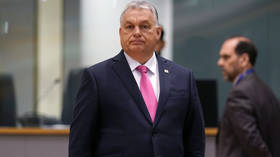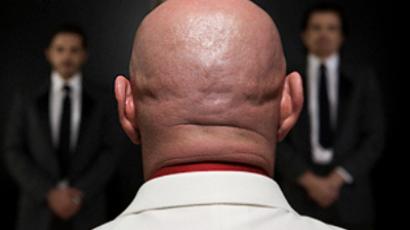Litvinenko case unsolved three years on
It is three years since former Russian security officer Aleksandr Litvinenko died of polonium poisoning in London.
After Scotland Yard's investigation pointed the finger at Russian businessman Andrey Lugovoy, legal wrangling over possible extradition led to a diplomatic spat between the UK and Russia.
Britain’s prime suspect says he is innocent and is willing to come to the UK to cooperate with the investigation.
“We would be ready to go there if firstly, the British resume the investigation; secondly, send all the materials they have here [to Moscow] to prove the basis of the charges; and thirdly, we see their real initiative,” Lugovoy insists on his conditions.
This month, Scotland Yard’s case against Lugovoy sustained a blow. A German court dropped its legal action against another Russian, Dmitry Kovtun, who was suspected of transporting the polonium-210 that Britain believed was used to kill Litvinenko. Kovtun has now been given access to the evidence against him.
“Already now we can see a lot of inconsistencies. If we study carefully all the documents and discrepancies in this case, it will help us to prove we are not guilty and to show to the world that the Russian party had nothing to do with that,” Kovtun said.
Originally, German authorities said the case against Kovtun was open and shut. They said he appeared to have left a trail of polonium wherever he went in the days leading up to Litvinenko’s murder – on a plane, in a car, and even in the Hamburg apartment of his ex-wife.
A leading writer of Britain’s The Times newspaper, Michael Binyon, believes the German court closed the case because of lack of evidence:
“It was probably decided there would not be a safe conviction – they wouldn’t have enough evidence to prove that the radioactive material was transported by Kovtun. They wouldn’t be able to call witnesses. They probably wouldn’t be able to produce the man and credible witnesses in Germany to have a fair trial. And without those things there’s no point going ahead with an accusation,” Binyon claims.
Now that Germany has thrown that case out, for many it begs the question: how strong is Britain’s evidence against Lugovoy?
“I sometimes wonder if the evidence is as strong as what we suggest it is. I’d like to think it was because the whole country is being led to believe that the evidence is so overwhelmingly patently easy to prove. Then we should try it and see if we can convince the Russian judicial system of the merits of the case. If we can’t, then let’s be honest enough to say we can’t,” says MP Mike Hancock, chairman of Britain’s All-Party Parliamentary Group on Russia.
Bringing Lugovoy to trial in Russia would be hard. While he is a Duma deputy he remains immune from prosecution.
The vindication of Kovtun may not automatically prove Lugovoy innocent. But the German case against Kovtun and the British case against Lugovoy both hinge on a radioactive trail. So if the Germans did not have enough to bring Kovtun to trial, the question is, how incontrovertible is the evidence of the Crown Prosecution Service?















